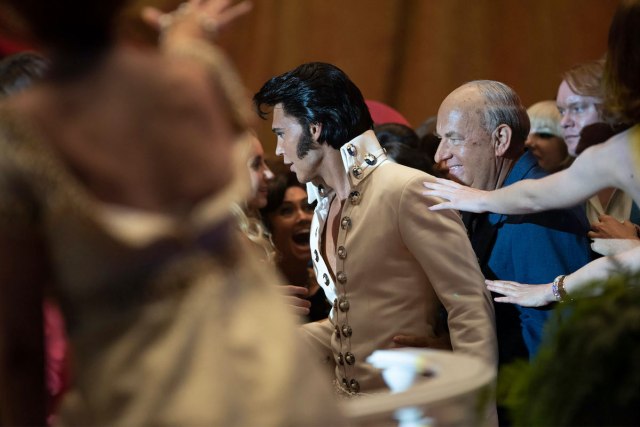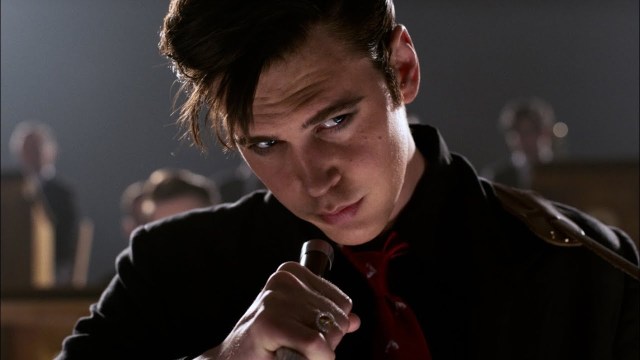Noemi Riccitelli – Presented out of competition at the last Cannes Film Festival, Elvis directed by the Australian director Baz Luhrmann is in cinemas from 22 June.
It is “only” the sixth film for Luhrmann, but the modus operandi of the director is such that each of his works becomes unique and precious, bridging the years between one work and another, making sure that his stories have an impact, remaining etched in the spectators.
The film tells the story of the king of rock ‘n’ roll, to whom the young man lends his face Austin Butlerfrom the point of view of his ambiguous manager, Colonel Tom Parker, played by Tom Hanks.
Rise and decline of Elvis Presleya musical, cultural and social symbol for over twenty years, in which it has dictated styles and fashions and challenged limits and conventions.
Mississippi, 1950s. Elvis Presley (Austin Butler) is a young and talented singer who loves to perform and express himself through music: his inspiration are the engaging and persuasive rhythms of rhythm & blues, assimilated by listening to the spiritual songs of the African American community in which he grew up, as well as the country riffs that resonated in the Southern States, in vogue at the time.
The meeting with the entrepreneur Tom Parker (Tom Hanks), a greedy and unscrupulous man, will certainly change the life of the young Elvis, dedicating his talent to the general public, but at the same time this artistic union will prove to be sick and distorted, also decreeing the end of a myth.
It is the voice of Tom Parker, in fact, who tells the story of Elvis, addressing the audience directly as he talks about “his boyfriend”.
The director takes the viewer directly into the stream of memories of the cynical and rational agent: a kaleidoscope of images and suggestions that evoke the sudden and magical artistic journey that saw a simple provincial boy become an icon of rock ‘n’ roll.
Even after 45 years from his death, the name alone has become proverbial to indicate a certain attitude, a way of proposing oneself, “to Elvis”: therefore, there is no doubt that it was a revolutionary personality. 
Tight-fitting clothing, eye makeup, jelly-shining hair with a bursting tuft, sensual movements bordering on the censorship of time: connotative traits that still characterize bands and artists of our timealthough a part of public opinion insists (as in Elvis’s time, for that matter) to consider them as a degeneration of contemporaneity, but in reality they are artistic touches that come, in fact, from afar.
The direction of Baz Luhrmann is glossy, eccentriccharacterized by frantic movements of the camera, an equally convulsive editing, which nevertheless reproduces precisely the swirling movements of the pelvis (Elvis “The Pelvis” his nickname) and the sensual movements of the artist.
Costumes, sets (whose care is by Catherine Martin And Karen Murphy) and music (Elliott Wheeler) are lively and colorful, enhanced by a brilliant photograph (Mandy Walker): it is true, the whole thing on the whole can appear excessive and perhaps even confusing, but it is the Luhrmann style and on this occasion the aesthetics and technique of the film adhere to the story of the protagonistallowing to perceive the same dimension of enthusiastic fury of the beginnings, up to the intimate discomfort of decline.
The two main performers, Austin Butler and Tom Hanks, are extraordinary in their respective roles.
The young Austin Butler in addition to having an obvious resemblance to his character, he offered an intense and passionate interpretationgiving voice and body to the King: a role that will certainly benefit his future career.
Tom Hanks, for his part, needs no introduction and in this film, despite the prosthetic make-up that alters its characteristics, he confirms his proven and brilliant artistic experience.
Also worth mentioning is the contribution of the Italian band Maneskin to the soundtrack of the film, with the cover of the song If I can dream sung by Elvis himself on several occasions in his career.
It is true that the stories of the lives of some stars seem, at times, all the same: a descending parable from the path already marked, but what makes the difference is the style of these narratives.
Elvis by Baz Luhrmann does not rank on a par with the well-known and previous works of the director, but it is certainly an original and interesting vision.
Elvis: Baz Luhrmann’s inspiration meets the revolutionary “The King” • Clarus

